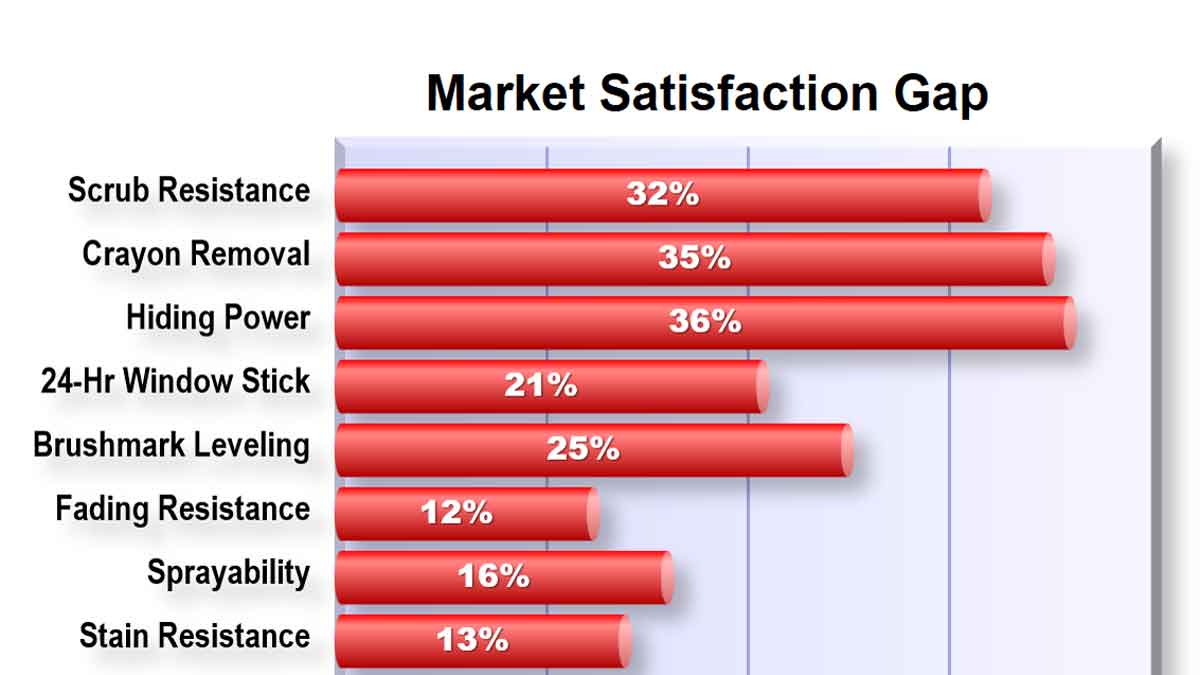If all customer outcomes in a market are either unimportant or already satisfied, you’ll see low Market Satisfaction Gaps. This is an over-served market, and there’s only one thing that makes these customers happy: Dropping your price. Race to more attractive markets and hope your competitors waste resources here. Have you identified your over-served markets yet?
More in white paper, www.marketsatisfactiongaps.com
What single new practice can drive your company’s long-term organic growth more than any other? Hint: Few companies do this today, but that’s changing… and someday this will likely be a common practice. The answer: The disciplined use of Market Satisfaction Gaps (MSG) as a required “admission ticket” for entering the costly product development stage. ... Read More
For years we’ve advised new product development teams to write a Business Case… to request moving their project into the development stage. But now we often suggest they use a simpler Market Case for their smaller projects. The Business Case has 12 sections while the Market Case has but 6. But the Market Case has the most important section… “Value Proposition”… in which solid evidence of customer needs is presented (usually in the form of Market Satisfaction Gaps).
Download Sample Market Case (after Step 3)
Exhibit A is an attractive market and Exhibit B is a documented need within this market. Most companies do OK with Exhibit A… identifying a market segment that is winnable and worth winning. But most are terrible at Exhibit B. This is being sure of which customer outcomes (desired end-results) companies will be rewarded for satisfying with a new product. Increasingly, companies are using Market Satisfaction Gaps to do this. (See 12 case stories)
More in white paper, Market Satisfaction Gaps
Here is our #1 recommendation for innovation success: Don’t start development stage work without quantitative evidence of customer needs. You can use Preference interviews followed by Market Satisfaction Gaps… or some other unfiltered, unbiased evidence. Two tips: 1) Don’t do this for very small projects, just those requiring 1+ person-year of development. 2) Don’t do this for technology development. Just product development, where you’ve targeted a specific market segment.
More in article, Market Satisfaction Gaps… your key to B2B organic growth
If your NPD teams are confident of customer needs, your projects will go faster for 3 reasons: 1) Bad ideas are killed quickly, freeing up resources. 2) Dead-end detours and diversions are avoided. 3) Hesitation—with second-guessing, delays and debates—is squelched. As Netscape founder, Jim Barksdale, said “If we have data, let’s use it. If we have opinions, let’s use mine.” B2B innovators can find the data they need in Market Satisfaction Gaps.
More in white paper, Market Satisfaction Gaps
We recently compiled a dozen short case stories of B2B clients doing impressive front-end work. (See www.aimcasestories.com.) What surprised us was how different each case was. The NPD project teams all used their quantitative Preference interviews to construct Market Satisfaction Gap profiles… and we were struck with how unique market segments can be. Truly, each one tells a story: Until you do quantitative interviews, though, that story goes untold.
More in article, Market Satisfaction Gaps… your key to B2B organic growth
This can super-charge your organic growth: Don’t let your R&D conduct any product development work without unbiased, unfiltered data on what customers do and do not want. Market Satisfaction Gaps—based on importance and satisfaction scores for customer outcomes—provide this. You’ll free up enormous resources by working on only what matters.
More in white paper, Catch the Innovation Wave (page 13).
If all customer outcomes in a market are either unimportant or already satisfied, you’ll see low Market Satisfaction Gaps. This is an over-served market, and there’s only one thing that makes these customers happy: Dropping your price. Race to more attractive markets and hope your competitors waste resources here. Have you identified your over-served markets yet?
More in article, Customer Interviews—By the Numbers (Originally published in B2B Organic Growth Newsletter).









